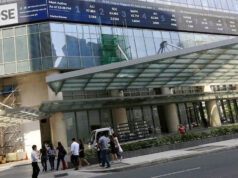WITH OIL PRICES expected to rise this year, airlines are unlikely to lower fares, which in turn may dent passenger demand, according to an aviation market intelligence provider said.
“Rising oil costs will stall fare decreases, dulling demand in what has become a highly price sensitive market,” CAPA said on its Web site for its outlook for 2018.
CAPA said that 2017 has “arguably been the sweetest spot for combined airline profitability and traffic growth ever experienced,” but this is unlikely to be maintained for 2018.
CAPA said the growth of the aviation industry can be attributed to both the “typical economic forces” and short-term forces.
While typical economic forces like gross domestic product (GDP) growth, business confidence, and trade flows all expectedly impact the aviation industry, these are not enough to determine the growth of the industry.
For the relationship between GDP growth and air traffic for example, a fair expectation would be passenger growth around two times the GDP growth, but growth has been at five times, not just 1.5 or two times GDP growth. Short-term influences particularly affect the aviation industry.
“Most recently, one of the biggest short-term influences has been the large fall in the price of oil. When oil prices were around $80 per barrel and above, airlines had adjusted their models to allow for that input cost. Capacity decisions, including aircraft retirement (or not); route planning; pricing, and staff hiring, were all influenced by the input cost of fuel, when oil prices dropped as low as the mid-$20s per barrel,” CAPA said.
“Given that aviation fuel costs constitute anything from 20% to 30% — and, for LCCs [low cost carriers], even 40% or more — of total cost, a rapid reduction in the barrel price from $100 to $30 made a massive difference to the shape of the industry; particularly in an industry which typically enjoys such thin profit margins,” the report added.
Airlines which took advantage of very low fuel prices to hedge their future needs for 2018 will feel the impact of higher fuel costs gradually, but the effect will be almost immediate for those who have not hedged and are more fully exposed the price increases. If added by higher interest rates and increasingly suppressed demand, the effect will likely be worsened.
“The bottom line is that we have almost certainly passed the unusual sweet spot of high profitability and high traffic growth experienced in 2017,” CAPA said.
This will mean a greater challenge for the industry to refocus, given the price of fuel and a competitive market.
“As fuel prices rise, the industry will once again be in the mode of refocusing to adjust to a new cost and competitive environment. The more they rise, the greater the challenge, as price sensitive discretionary travelers are deterred,” CAPA said. — P.P.C. Marcelo
BusinessWorld‘s Top 1000 Corporations in the Philippines can be purchased at Fully Booked and National Bookstore outlets. You may also purchase it by calling BusinessWorld at Tel. (632) 535-902 extension 102.



